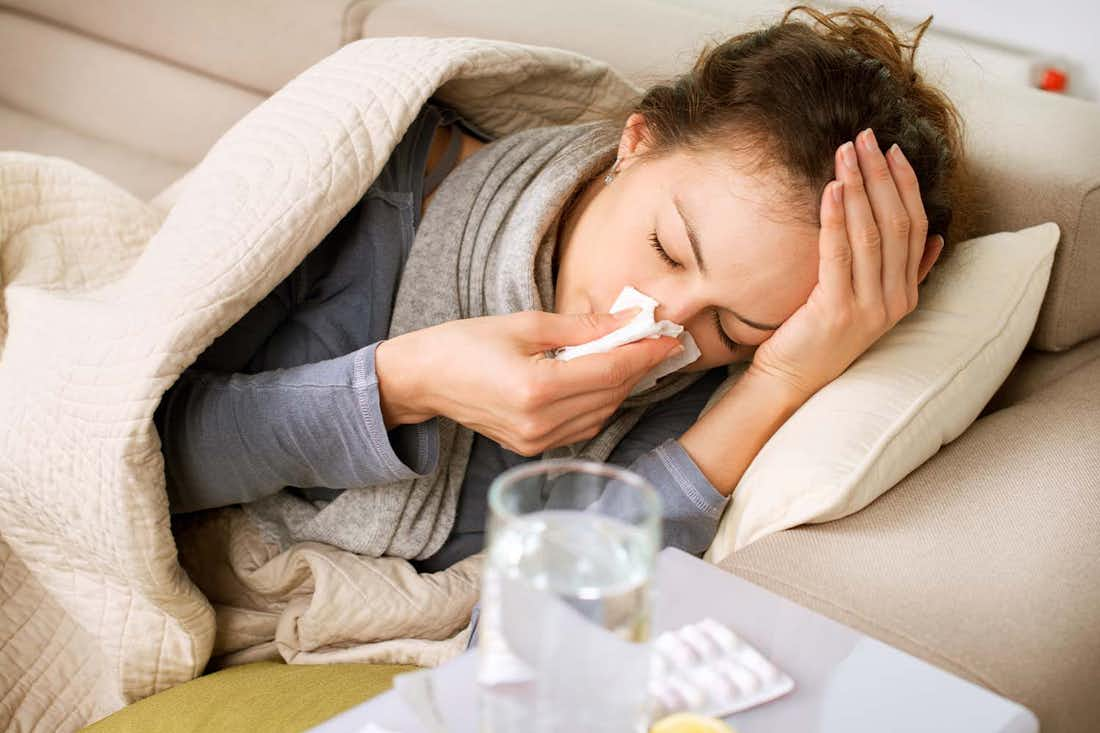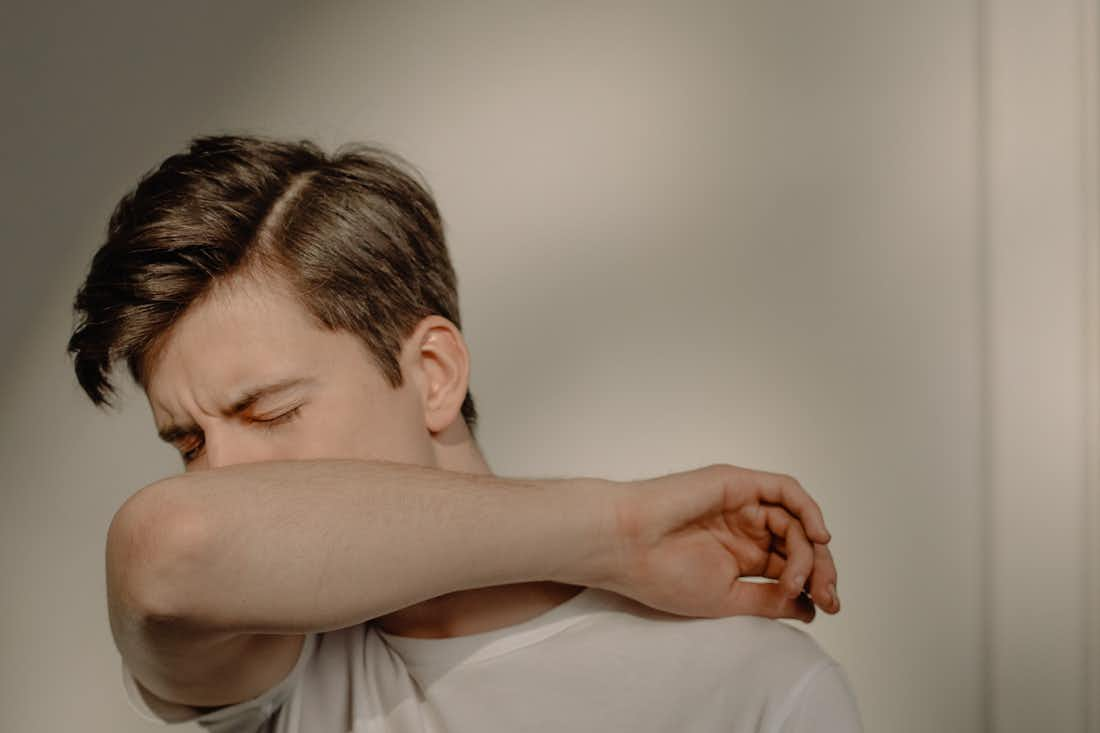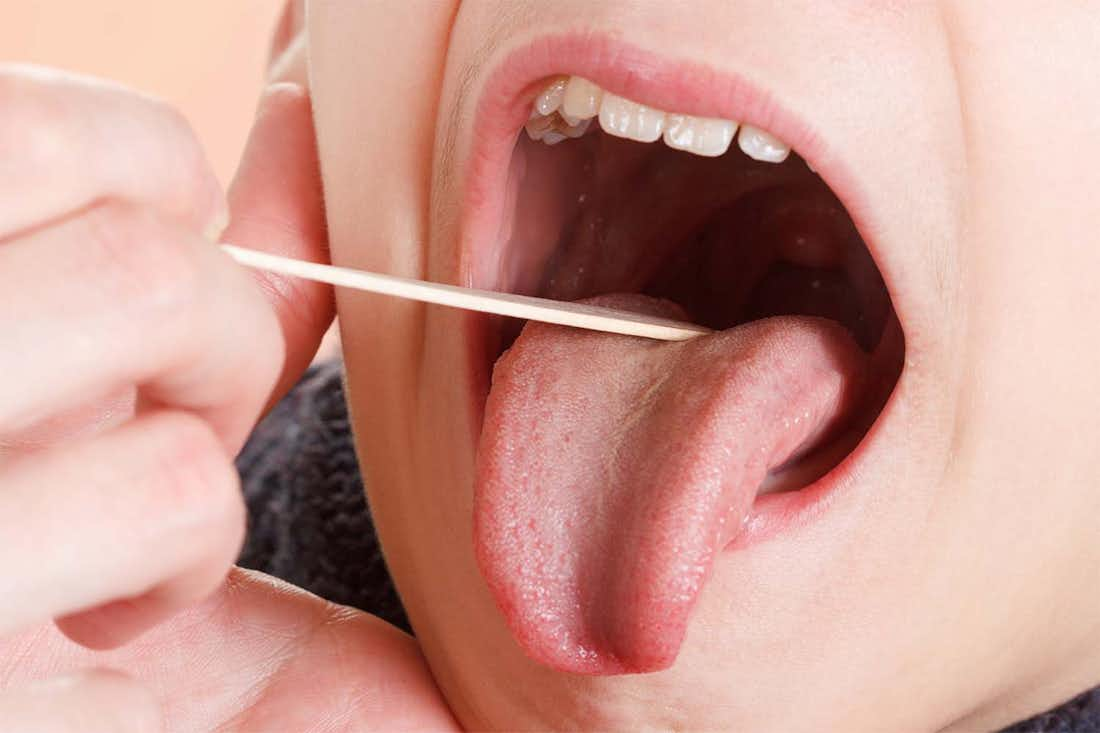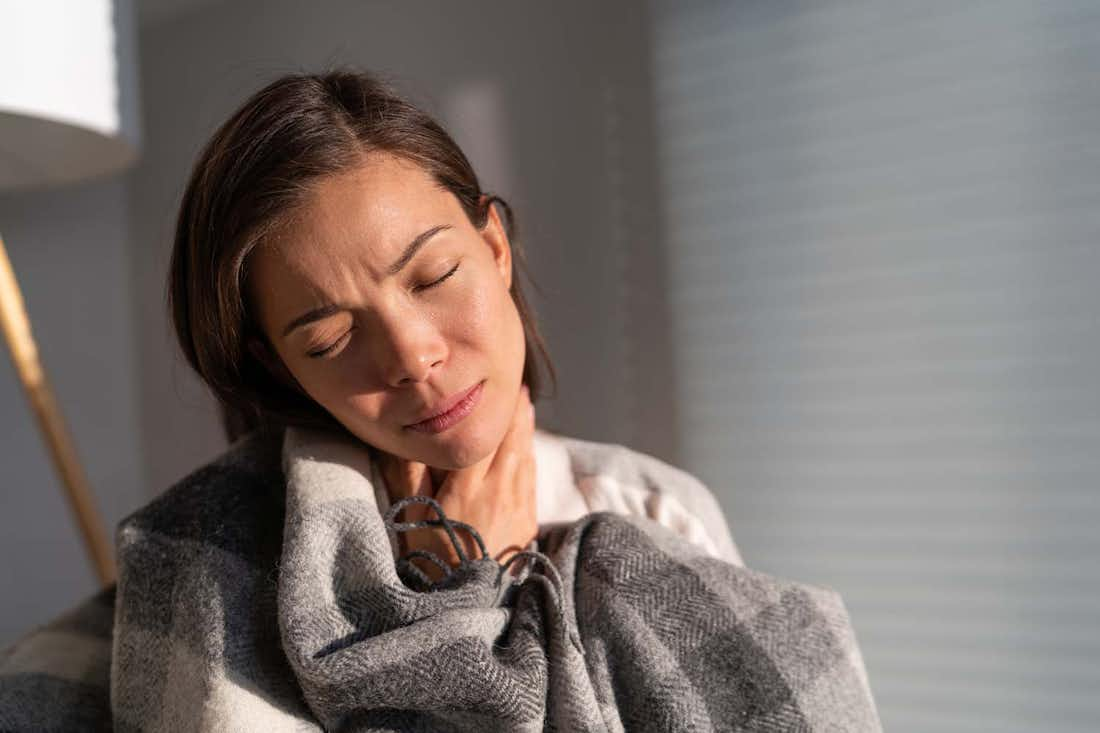Oct 13, 2021
What Causes Sneezing?
5 minute read
It’s great to go outside on a beautiful spring day to do some yard work, go for a run, or walk the dog. But when pollen and other allergens trigger an endless onslaught of annoying sneezes, all you’ll want to do is hold up inside.
Have you ever wondered why something as simple as a dog or as harmless as dust can cause your nose to go into overdrive? What exactly causes the pesky sneezes that have the potential to completely ruin your afternoon?
We’ve got all the answers so that you can know your nose even better than you ever have.
It’s Just Biology
Your body’s immune system is your second line of defense from foreign invaders. Your first line of defense is your nostrils. Their job is to trap dirt and bacteria to keep the air you breathe clean so that harmful substances never get a chance to make it into your body.
Seasonal allergies or hay fever (allergic rhinitis) could be the cause of all the sneezing you are experiencing.
However, the mucous membranes in your nose and throat are super sensitive, and they don’t quite like it when dirt and debris reside in them. When the membranes become irritated, your body tries to expel them through something called a sneeze.
There are a lot of irritants that can trigger sneezing, including:
- Allergens, like mold, pets, or pollen
- Colds, viruses, sinus infections
- Nasal congestion
- Drug withdrawal or overuse
- Hormonal changes
- Certain medications
- Tobacco smoke
- Strong odors or fumes
- Perfumes
- Air pollution
- Dry air
The Strange Side of Sneezing
Sneezing due to allergies or colds makes a lot of sense -- it’s a way for your body to make sure nothing nasty gets into your body. But there are a lot of unknowns surrounding this natural phenomenon that doesn’t really add up. For instance, sneezing can be caused by exposure to bright lights.
Autosomal Dominant Compelling Helioopthalmic Outburst (aptly named ACHOO syndrome) is a medical condition that refers to uncontrollable sneezing in the presence of bright light. About one in four people will sneeze if they look into light when they feel a sneeze coming on. It’s not fully understood why this happens, but it’s yet another cause of sneezing that you can add to the list.
Certain foods can activate your sneeze reflex too. Since the membranes that cause sneezing can be found in your nostrils as well as your throat, certain foods can irritate both and lead to some sniffles. Particularly, spicy foods and hot foods can cause runny nose, sneezing, and coughing.
If you have fluid or drainage after sneezing, this could also signify a sinus infection. Visit your healthcare provider for a diagnosis.
Best Treatment for Sneezing
Despite its annoying nature, sneezing is rarely associated with a serious health condition. And while you can’t necessarily “treat” a sneeze, there are ways that you can treat the underlying causes that are making your nose go into overdrive.
Avoid Triggers
One of the best ways to stop sneezing is to avoid the things that cause them in the first place. This means avoiding the triggers that irritate your nostrils, like pollen, animal dander, ragweed, and more.
If you’re not entirely sure what’s causing your sneezures every day, you might benefit from an allergy test. Skip a trip to the lab by taking Cleared’s at-home allergy test that checks for over 40 common environmental triggers. It’s a quick and easy way to learn what makes your nose feel gross.
Antihistamines
When an allergen enters your airway and your immune system starts to attack, it releases a hormone called histamine. Histamines are the reason why you sneeze, cough, get a sore throat, and have watery eyes whenever a trigger gets in your way.
Antihistamines are over-the-counter medications that work to inhibit the production of histamines, so you don’t get any of those unwanted symptoms in the first place. You can take them orally, or you can pinpoint the source with nasal sprays that work in your nostrils directly—no need to take allergy shots.
If you’re an allergy sufferer, you already know how expensive it is to keep loading up your medicine cabinet with all of these meds. But your wallet can rest easy when you get all of your favorite generic brand relief medications at a fraction of the cost with Cleared.
Keep It Clean
Dust mites, mold, and unhealthy air can make your nose more prone to sneezing than it needs to be. Sometimes, something as simple as a quick clean can prevent sneezing and reduce the underlying causes.
You can kill dust mites on linens by heating them in a drier at a temperature of at least 130 degrees Fahrenheit for 15 minutes. You should use a bleach solution to scrub away the allergen and keep sneezes at bay for mold.
Stop Allergies = Stop the Sneeze
Antihistamines are essential for bringing fast relief to the toughest sneeze attacks. But wouldn’t it be great if you were able to prevent the allergens from occurring in the first place?
Sublingual immunotherapy, also known as SLIT, is a prescription medication that actually works to stop the underlying cause of allergies rather than just treat its symptoms. It’s perfect for people who can’t stop sneezing no matter what.
It’s safe, effective, and FDA-approved. Click here to learn more about how you can finally say goodbye to sneezures once and for all.
Clearing the Air
Sneezing is a normal bodily response that occurs when the nasal lining in your nostrils becomes irritated by an external force like allergens, smoke, or viruses. It’s a way for your body to try to get rid of nasty substances before they have the chance to get into your immune system.
With that said, sneezing can even be caused by exposure to bright lights or eating certain foods. But as tricky as it is, you can do a lot to counteract them, like taking antihistamines and avoiding some of your known triggers.
Sources:
ACHOO Syndrome - Medical Genetics Summaries | NCBI Bookshelf



